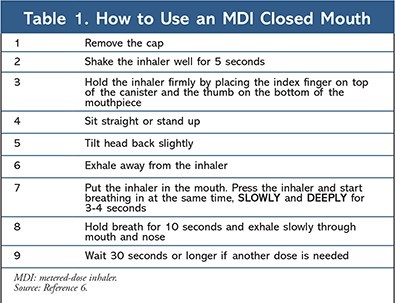A nurse is teaching a client who has a new prescription for dimenhydrinate. Which of the following instructions should the nurse include in the teaching?
Administer 24 hr before effects are desired.
Expect an increase in salivation.
Monitor for dizziness.
Observe for diarrhea
The Correct Answer is C
Dimenhydrinate is an antihistamine commonly used to treat motion sickness and vertigo. One of the common side effects of dimenhydrinate is dizziness. It can cause sedation and impair cognitive and motor functions. Therefore, the client should be advised to be cautious when engaging in activities that require alertness, such as driving or operating machinery. Monitoring for dizziness and taking appropriate precautions can help prevent accidents and ensure the client's safety.
The other options provided in the original response are incorrect:
- Administer 24 hr before effects are desired: This is not a correct instruction for dimenhydrinate. The medication is typically taken 30 minutes to 1 hour before the desired effects, such as before travel to prevent motion sickness.
- Expect an increase in salivation: Dimenhydrinate does not typically cause an increase in salivation. This is not a known side effect of the medication.
- Observe for diarrhea: Diarrhea is not a common side effect of dimenhydrinate. While gastrointestinal disturbances can occur with some antihistamines, it is not typically associated with dimenhydrinate use.
Nursing Test Bank
Naxlex Comprehensive Predictor Exams
Related Questions
Correct Answer is C
Explanation
Benzonatate is available in capsule form (such as Tessalon Pearls), and it should be swallowed whole. It is important not to chew, crush, or break the capsules as this can cause adverse effects, including local anesthesia in the oral cavity, which can lead to choking or difficulty swallowing. Swallowing the capsule whole ensures that the medication is released properly in the stomach for the desired effect.
The other options mentioned are incorrect:
A. Eating a high-fat meal prior to taking medication: There is no specific requirement to eat a high-fat meal before taking Benzonatate. However, taking it with food or a glass of water may help with ease of swallowing.
B. Taking medication often and whenever a cough is starting: Benzonatate should be taken as directed by the healthcare provider. It is not recommended to take it more frequently or as needed, as it can lead to an overdose or unwanted side effects.
D. Taking medication with orange juice: There is no specific requirement to take Benzonatate with orange juice. It can be taken with water or other non-alcoholic beverages as directed by the healthcare provider.
Correct Answer is C
Explanation
When using an albuterol inhaler, it is important for the client to take a slow and deep inhalation while releasing the medication from the inhaler. After inhaling the medication, holding the breath for about 10 seconds allows the medication to reach deep into the airways and maximize its effectiveness.
The other actions mentioned are not correct:
A. Waiting 10 minutes between inhalations: Albuterol inhalers are typically used as a quick-relief medication for acute symptoms, and waiting 10 minutes between inhalations may not provide immediate relief when needed. The specific instructions on the frequency of inhalations should be provided by the healthcare provider.
B. Taking a quick inhalation while releasing the medication from the inhaler: It is important to take a slow and deep inhalation while releasing the medication to ensure that the medication reaches the lungs effectively. Taking a quick inhalation may result in less effective delivery of the medication.
D. Exhaling as the medication is released from the inhaler: It is important to exhale fully before using the inhaler to ensure that the medication is inhaled deeply into the lungs. Exhaling while releasing the medication can interfere with the proper inhalation technique.

Whether you are a student looking to ace your exams or a practicing nurse seeking to enhance your expertise , our nursing education contents will empower you with the confidence and competence to make a difference in the lives of patients and become a respected leader in the healthcare field.
Visit Naxlex, invest in your future and unlock endless possibilities with our unparalleled nursing education contents today
Report Wrong Answer on the Current Question
Do you disagree with the answer? If yes, what is your expected answer? Explain.
Kindly be descriptive with the issue you are facing.
